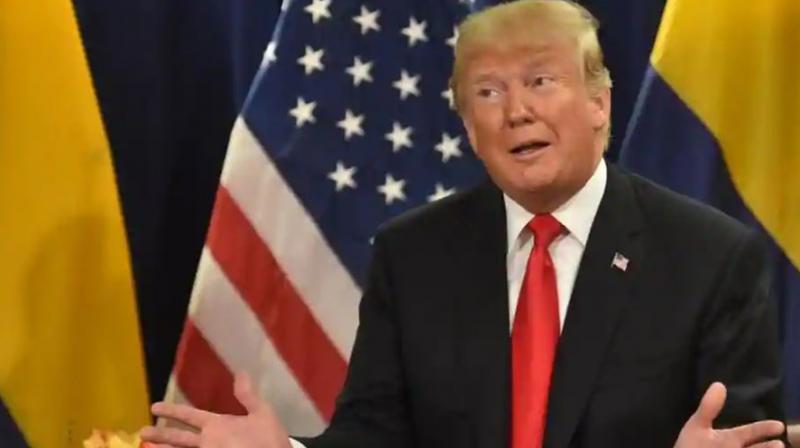US will pull out of nuclear weapons treaty with Russia: President Trump
21 October, 2018

President Donald Trump confirmed Saturday that the United States plans to leave a Cold War-era nuclear weapons treaty with Russia, which criticised the move as Washington's latest effort to be the sole global superpower.
Trump claims Russia has long violated the three-decade-old Intermediate-Range Nuclear Forces Treaty, known as the INF, which was signed in 1987 by president Ronald Reagan and Mikhail Gorbachev.
But a foreign ministry source told the RIA Novosti state news agency that Washington's "main motive is a dream of a unipolar world," one that won't be realised.
"We're the ones who have stayed in the agreement and we've honored the agreement, but Russia has not unfortunately honored the agreement, so we're going to terminate the agreement and we're going to pull out," Trump told reporters in Elko, Nevada.
"Russia has violated the agreement. They've been violating it for many years. I don't know why president (Barack) Obama didn't negotiate or pull out. And we're not going to let them violate a nuclear agreement and go out and do weapons (while) we're not allowed to."
Trump spoke as his National Security Advisor John Bolton was set to meet next week with Russia's Foreign Minister Sergei Lavrov, ahead of what is expected to be a second summit between Trump and Russian leader Vladimir Putin this year.
Bolton was also set to meet with Security Council Secretary Nikolai Patrushev and Putin aide Yuri Ushakov. Kremlin spokesman Dmitry Peskov said a "possible meeting" was being prepared between Putin and Bolton.
The Trump administration has complained of Moscow's deployment of 9M729 missiles, which Washington says cam travel more than 310 miles (500 kilometers), and thus violate the INF treaty.
The treaty, which banned missiles that could travel 310 to 3,400 miles, put a term to a crisis that began in the 1980s with the deployment of Soviet SS-20 nuclear-tipped, intermediate-range ballistic missiles targeting Western capitals.
US or Russia at fault?
The Russian foreign ministry official accused Washington of implementing policy "toward dismantling the nuclear deal."
Washington "has approached this step over the course of many years by deliberately and step by step destroying the basis for the agreement," the official said, quoted by Russia's three main news agencies.
"This decision is part of the US policy course to withdraw from those international legal agreements that place equal responsibilities on it and its partners and make vulnerable its concept of its own 'exceptionalism,'" the official said.
Russian senator Alexei Pushkov wrote on Twitter that the move was "the second powerful blow against the whole system of strategic stability in the world" with the first being Washington's 2001 withdrawal from the Anti- Ballistic Missile treaty."
"And again the initiator of the dissolution of the agreement is the US," Pushkov wrote.
Bolton himself is pressuring Trump to leave the INF and has blocked any negotiations to extend the New Start treaty on strategic missiles set to expire in 2021, according to The Guardian newspaper.
A US withdrawal from the INF could also target China. As a non-signatory, Beijing can develop without constraints intermediate-range nuclear weapons.
US-Russia ties are under deep strain over accusations that Moscow meddled in the 2016 presidential election, as well as tension over Russian support for the Syrian government in the country's civil war, and the conflict in Ukraine.
On Friday, the finance chief of Russia's leading troll farm was indicted in the US for interfering with US elections, the first person to face charges involving the 2018 congressional midterm vote.
Russia accused the US of fabricating the charges.
Washington is, however, looking for support from Moscow in finding resolutions to the Syria war and putting pressure on both Iran and North Korea.
No new summit between Trump and Putin has been announced, but one is expected in the near future.
The two leaders will be in Paris on November 11 to attend commemorations marking the end of World War I.
A senior Trump administration official, who spoke on condition of anonymity, said another potential date would be when the presidents both attend the Group of 20 meeting on November 30 to December 1.
